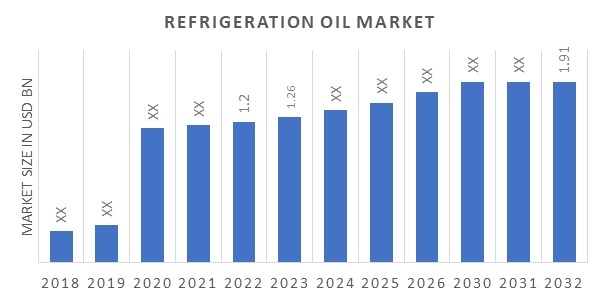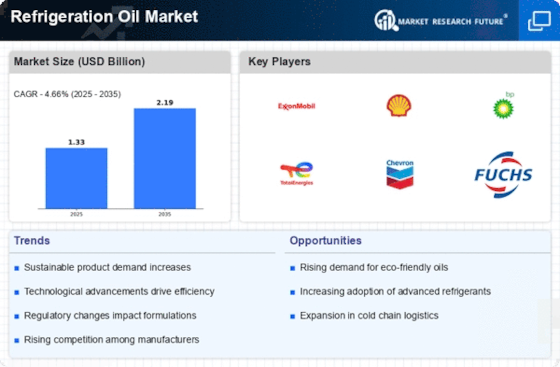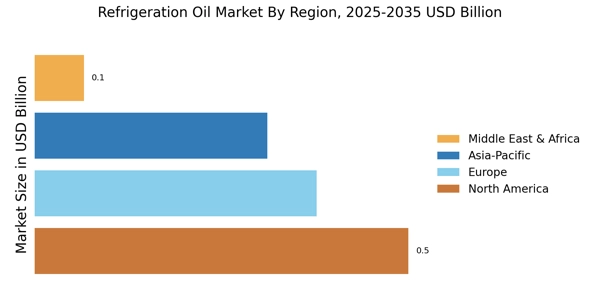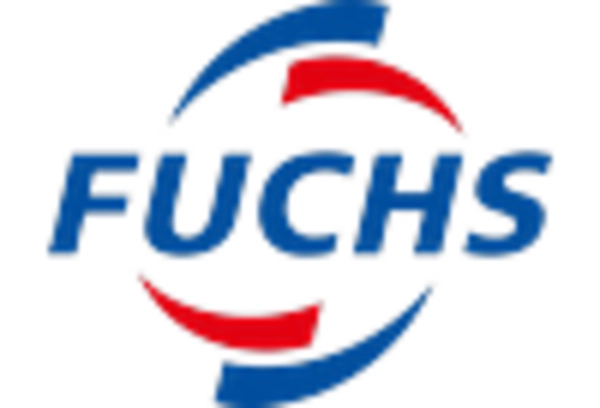Regulatory Compliance
Regulatory compliance is a significant driver in the refrigeration oil market, as governments worldwide implement stringent regulations regarding the use of refrigerants and lubricants. These regulations often mandate the use of specific types of refrigeration oils that meet environmental and safety standards. Consequently, manufacturers are compelled to adapt their product offerings to comply with these regulations, which can lead to increased demand for compliant refrigeration oils. The refrigeration oil market is thus experiencing a shift towards oils that not only fulfill performance criteria but also adhere to regulatory requirements, ensuring that businesses remain compliant while optimizing their operations.
Technological Innovations
Technological advancements are playing a pivotal role in shaping the refrigeration oil market. Innovations in formulation and production processes are leading to the development of high-performance oils that enhance the efficiency of refrigeration systems. For instance, the introduction of synthetic oils has improved thermal stability and reduced energy consumption. The refrigeration oil market is also benefiting from advancements in lubrication technology, which contribute to longer equipment life and reduced maintenance costs. As manufacturers continue to invest in research and development, the market is likely to see a surge in innovative products that cater to the evolving needs of end-users.
Sustainability Initiatives
The increasing emphasis on sustainability within the refrigeration oil market is driving demand for eco-friendly products. Companies are increasingly adopting practices that minimize environmental impact, leading to a shift towards biodegradable and non-toxic refrigeration oils. This trend is supported by regulatory frameworks that encourage the use of sustainable materials. As a result, the refrigeration oil market is witnessing a rise in the development of oils that not only meet performance standards but also align with environmental goals. The market for sustainable refrigeration oils is projected to grow significantly, reflecting a broader commitment to reducing carbon footprints and enhancing energy efficiency in refrigeration systems.
Rising Demand for Energy Efficiency
The growing demand for energy-efficient refrigeration systems is a key driver in the refrigeration oil market. As businesses and consumers alike seek to reduce energy consumption and operational costs, the need for high-quality refrigeration oils that enhance system efficiency becomes paramount. Oils that provide superior lubrication and thermal management contribute to the overall performance of refrigeration systems, leading to lower energy usage. This trend is particularly evident in sectors such as food and beverage, where energy efficiency is critical. The refrigeration oil market is thus positioned to benefit from this rising demand, as manufacturers develop oils that meet the energy efficiency standards set by various industries.
Expansion of Refrigeration Applications
The expansion of refrigeration applications across various sectors is significantly influencing the refrigeration oil market. Industries such as food processing, pharmaceuticals, and HVAC are increasingly relying on advanced refrigeration technologies, which in turn drives the demand for specialized refrigeration oils. As these sectors grow, the need for oils that can perform under diverse conditions and meet specific operational requirements becomes essential. The refrigeration oil market is likely to see an increase in product diversity, with manufacturers developing tailored solutions to cater to the unique needs of different applications. This trend suggests a robust growth trajectory for the market as it adapts to the evolving landscape of refrigeration technologies.


















